The best bits from the summer period!
To keep the overall size of this policy update smaller we have included several linked documents to provide further detail on some items. These documents are in pdf format and accessed through a hyperlink in the text. If you would like the original documents (in Word) for accessibility purposes, please email us on policy@bournemouth.ac.uk
Parliamentary News: Reshuffle, no kerfuffle
Rishi has reshuffled his Ministers and you can find all the Cabinet members here. All the junior ministers and their portfolios for both departments are here.
It’s stability in the main for both departments. David Johnston OBE joins the DfE as Parliamentary Under Secretary of State (mainly care, SEND and schools focussed but with free speech in education within his brief too), replacing Claire Coutinho, who was promoted). Johnson was previously Chief Executive of the Social Mobility Foundation (a charity which runs a range of programmes that incorporate mentoring, internships, university application support and skills development to help young people from low-income backgrounds enter universities and professions). Johnson has been active in the media on education, generally supportive of technical education, and tweets about social mobility factors a lot.
Labour has reshuffled the Shadow Cabinet appointments – I’ve put all the appointments (both new and those that have remained in post) here. Of most interest are:
- Matt Western remains as the Shadow Minister for HE
- Seema Malhotra is appointed as the Shadow Minister for Skills
- Peter Kyleappointed as Shadow Secretary of State for Science, Innovation and Technology
Horizon Europe
Finally!!! The Government has announced that the UK has made a deal and will associate with the Horizon Europe and Copernicus programmes through a bespoke agreement with the EU. Researchers can apply for grants and bid to take part in projects under the Horizon programme, as a fully associated member from now until the end of this Horizon programme in 2027. Once adopted, the UK will also be able to join the governance of EU programmes – which the UK has been excluded from over the last three years.
The UK will also associate to Copernicus, the European Earth Observation programme. This will provide the UK’s earth observation sector with access to specialist data, e.g. to help with early flood and fire warnings, and be able to bid for contracts (we’ve been excluded for the last three years).
It may be a case of the devil is in the detail however, the Government’s press release sets out the financial protections that have been agreed for the UK:
- We will not pay for the time where UK researchers have been excluded from since 2021, with costs starting from January 2024…This will also provide breathing space to boost the participation of UK researchers in open calls for grants before we start paying into the programme. [Because it’s expected it’ll take UK researchers some lead time before the UK begins securing a volume of successful bids.]
- The UK will have a new automatic clawback that protects the UK as participation recovers from the effects of the last two and a half years. It means the UK will be compensated should UK scientists receive significantly less money than the UK puts into the programme. This wasn’t the case under the original terms of association.
UUKI state the agreement must be adopted by the EU-UK Specialised Committee on Union Programmes. They also clarify:
- UK researchers will be able to carry out European Research Council and Marie Sklodowska-Curie Action projects in the UK while retaining their status as ERC or MSCA grantees.
- UK researchers can once again lead collaborative projects as coordinators.
- UK research entities will count towards the consortium eligibility requirements as one of the three required partners from EU Member States or Associated Countries (nb. consortia will still need one partner from an EU Member State).
From Minister Donelan’s written statement:
- From today, UK scientists can bid and participate confidently in the world’s largest programme of research cooperation – alongside their EU, Norwegian, New Zealand and Israeli colleagues – and with countries like Korea and Canada looking to join…UK academics and industry will be able to bid, secure funding for, and, crucially, lead, the vast majority of new calls that will be opening throughout the autumn. UK researchers and businesses can be certain that all successful UK applicants will be covered through the UK’s association for the rest of the programme (or through the remainder of the UK’s Horizon Europe Guarantee scheme as we transition to these new arrangements). All calls in Work Programme 2024 will be covered by association and the UK guarantee scheme will be extended to cover all calls under Work Programme 2023. UK scientists and researchers can lead project consortia under Work Programme 2024 – a key ask of the sector – allowing them to shape the next generation of international collaboration.
- Under the previous programme the UK established over 200,000 collaborative links, and we will now play a leading role in a range of ground-breaking industry collaborations such as the AI, Data and Robotics Partnership worth over £2 billion, or the Cancer Mission aiming to help more than 3 million people by 2030.
- Access to Horizon Europe was a top ask of our research community. We have listened to our sector and in this deal delivered collaboration where it is most valuable to UK science. This provides our scientists with a stable base for international collaboration and makes sure we are on track to deliver on the ambition to make the UK a science and technology superpower by 2030.
Euratom (nuclear) association is out, rumoured because the UK believes we’re further ahead than Europe. Donelan: The UK will not join the Euratom programme. The UK fusion sector has communicated a preference for an alternatives programme that would involve direct investment in the UK sector. We are pleased to announce that we will be doing exactly that. We plan to invest up to £650 million to 2027 in a programme of new, cutting-edge alternative programmes subject to business cases, and will announce further details shortly.
Links: Government press announcement; EU/UK joint statement; FAQs on the deal (provided by EU)
Press: Guardian. Research Professional: charm offensive, plan B still on cards (Minister Freeman), implications for Switzerland. UUK warm welcome
FRAP
The Future Research Assessment Programme (FRAP) is gradually wrapping up following the latest publications. The FRAP addressed how research might be measured (and rewarded) in 2028 and proposed a number of changes to the current REF. The reports that informed the planned changes have been released. This Research Professional article is a good quick read, it begins: we learned what had influenced the thinking behind these changes, with the publication of a summary of stakeholder engagements, an analysis of equality, diversity and inclusion in the 2021 Research Excellence Framework and another analysis, commissioned from the policy-advice group Technopolis, of how much that exercise had cost to run.
- …the starkest numbers appeared in the examination of costs. It showed that the overall cost for higher education institutions reached £430 million for REF 2021, up from £237m for the 2014 exercise. The four UK national funding bodies spent a further £17m, while the cost to the panels that assessed submissions was £24m.
- The total average cost for each university or research institute rose from £2m in REF 2014 to £3m in REF 2021, with the average cost per researcher submitted amounting to £6,000—up from £4,000.
- institutions had also been doing a lot of work that they weren’t asked to do because they wanted to optimise the REF process—hardly surprising…
- the interesting thing for 2028 is how can we reach a kind of settlement with the sector to say how much of this do we really need to do?”…“And how much can we stand back from in the interests of reducing the burden on everybody?”
- by removing the association between individual staff and outputs, the changes suggested by the Frap would make a big difference—particularly for institutions without a large infrastructure, such as smaller specialist institutions.
- Implementing the Frap recommendations is expected to save institutions an estimated £100m and…. the research funders would use the Technopolis report to make calculated reductions in costs.
You can find all the reports here and the stakeholder engagement summary here.
Wonkhe have a blog too: REF is expensive because it’s good value.
Research – Quick news
The Science and Technology Committee published their interim report into the governance of AI: summary here. There’s a world first summit on AI safety to be held 1-2 November. International governments, leading AI companies and experts in research will unite for crucial talks and agree a set of rapid, targeted measures for furthering safety in global AI use. Matt Clifford and Jonathan Black have been appointed as the Prime Minister’s Representatives.
- Announcements: UKRI announced the creation of four new research facilities, and a survey has found that “extreme measures” are needed to help some European research infrastructures deal with the “severe” impact of higher energy costs (Research Professional).
- Peer Review: Research Professional have an article on UKRI’s Review of Peer Review: UKRI report suggests AI could improve grant reviews.
- Overall: UKRI has published its annual report and accounts for financial year 2022–23. The year saw it assess over 22,300 applications for funding, and make 6,118 awards (as well as support 1,897 Horizon Europe Guarantee grants). (Wonkhe.)
- QR Funding: Research England has notified institutions that it is “not yet in a position” to confirm quality-related research (QR) funding or Higher Education Innovation Funding (HEIF) allocations for 2023–24, “due to the complete replacement of our analytical system and associated quality-assurance processes.” It plans to publish an overview of its budget later this month, and individual allocations from late summer. (Wonkhe.)
- Parliamentary Question: Strengthening UK-Africa science and tech research and partnerships.
- Life Sciences sector: OLS, DSIT and DHSC have jointly published the life sciences sector data for 2023 covering the research environment, domestic market, production environment, international collaboration, investment environment, and access to skilled labour. Links:
Life sciences competitiveness indicators 2023
Life sciences competitiveness indicators 2023: life science ecosystem
Life sciences competitiveness indicators 2023: user guide
Life sciences competitiveness indicators 2023: data tables
Foundation year fee caps & student number controls
Read more about the government’s latest plans to incentivise quality below. In that context, the outcomes of the first two of the OfS investigations into quality related matters – 2 of the 8 business and management investigations – were reported this week. The OfS haven’t announced any sanctions yet, but number controls could be in their toolbox. The VC of London South Bank University (no concerns were found after the investigation) wrote for HEPI about the experience.
Way back (February 2018) PM Theresa May announced a review of post-18 education and funding whereby the Government consulted on HE reform, and the Augar report (2019) resulted. There was a lot of change on the table for consideration and the Government launched further consultation concluding in January 2021 and February 2022. The Government introduced piecemeal changes since the Augar report, most recently laying the legislation for the Lifelong Loan Entitlement (implemented from 2025). This Government response document is the latest in these piecemeal changes and continues to focus on changes to ensure high quality HE provision across the sector. The Government states:
We have set out…what more government will do to continue to drive up the quality of higher education. This includes asking the Office for Students (OfS) to use recruitment limits to help drive out provision which is not delivering good student outcomes, a sharp focus on franchising arrangements, and a reduction in the maximum fee and loan limits for classroom-based foundation years. We will also ask the OfS to consider how they can take graduate earnings into account in their quality regime. We know many factors influence graduate earnings – but students have a right to expect that higher education will lead to improved employment opportunities and commensurate earnings… These reforms represent the start, and not the end, of our determination to drive out low-quality provision. We are confident that this will be successful with the support of the sector. The Government has decided not to proceed with a minimum eligibility requirement at this point in time, but if the quality reforms set out here do not result in the improvements we seek, we will consider further action if required.
Student Number Controls: The government believes that as most HEIs charge the maximum fee, combined with no student number controls, it has incentivised providers to expand student numbers on courses that are less expensive to teach, but which may only provide limited benefits to graduates and the wider economy.
There was a consultation on whether to introduce student number controls to prevent ‘the growth of low quality provision’. Instead the Government decided to task (via statutory guidance) the OfS to consider ‘recruitment limits’ for courses not delivering positive outcomes for students – this is already in train because the OfS is already permitted to impose recruitment limits on providers. However, the Government’s newly announced plans concern the OfS’ existing powers and regulatory framework, including the B3 condition of registration on student outcomes (continuation rates, course completion, and graduate progression). Recruitment limits won’t be applied to a course without a prior investigation, and providers will have opportunities to set out contextual information for why a course might not be delivering the student outcomes required by the B3 condition.
The OfS is expected to consider how it can incorporate graduate earnings into its regulatory regime for quality purposes too.
Foundation Year Fee Caps: Foundation years are a route in for students that do not meet the entry requirement for a particular course. However, the Augar report questioned how effective and necessary they were for students. And with the introduction of the Lifelong Loan Entitlement the Government does not want the full lifelong entitlement to be taken by one degree course entered through a foundation year. They have also been vociferous in their questioning of foundation year costs and urged for some time for the fees charged to be lower. Through the document the Government has stipulated the from 2025/26 the maximum fee and loan limit for foundation years will be lowered to £5,760 for classroom-based subjects whilst the maximum fee and loan limits of £9,250 will remain for all other subjects.
Here’s a little more detail:
- ‘classroom based foundation years provision’ means the subjects currently in OfS Price Group D …the government will issue detailed guidance to the higher education sector on the subjects that the £5,760 fee cap will apply to in due course. While we’re waiting, we do know the challenge is to law, business and management (not tourism, transport or travel), social sciences (not health studies), and humanities (English, historical, philosophical and religious studies (exception is archaeology) including publicity studies. Although it really depends which HECoS code the course falls within as to whether it’s in or out.
- The Government means business on the foundation year clamp down: We will keep fee and loan limits for foundation years under review, particularly where growth is concerning, and will not hesitate to impose further reductions if necessary. We encourage providers to ensure their business model is not reliant on income from foundation years.
Throughout the Government’s campaign to reduce foundation years undertaken, and reduce their costs where there do continue has been the push back from the access and participation community who state foundation years remove barriers and allow non-traditional or disadvantaged students to enter HE and ultimately achieve a degree.
Finally, other consultation questions covered plans for a new national scholarship scheme and how to grow the provision of high-quality level 4 and 5 courses. The Government document didn’t contain any detail on the scholarship scheme, however, they have confirmed they will not change the maximum fee limits for level 4 and 5 courses from £9,250 at this time.
Students
- Cost of living: The Commons Library have a briefing on Cost of living support for students
- Student struggles: The National Union of Students (NUS) Wales has published survey findingswhich show that a quarter of students in post-16 education were unable to find suitable housing last year as rent and bills increased, and 8% had experienced homelessness.
The research on the impact on students of the cost-of-living crisis also found that 1 in 5 students were working more than 20 hours a week alongside their studies, with 64% of those with jobs saying it negatively impacted their students.
Accommodation
PwC and StudentCrowd published Student accommodation: Availability and rental growth trends July 2023 for privately-owned Purpose Built Student Accommodation (PBSA) across the UK.
While demand outstripping supply creates an investment opportunity, particularly for private capital, it also represents a challenge for both universities and students. If left unresolved, it is likely to adversely impact affordability of accommodation, the student experience, university reputation and, ultimately, future recruitment of students. With students facing rising costs of living, without a corresponding increase in maintenance loan levels, the cost of accommodation will, for some, become a prohibitive factor in higher education (HE) participation, impacting those from under-represented groups the most.
There are illustrative charts and more detail along with recommendations for colleagues particularly interested in student accommodation – see the full report.
Healthcare students – pay and childcare
There are three petitions currently in front of parliament relating to pay and financial support (childcare) for healthcare students including student midwives, nurses and paramedics. The petitions call for healthcare students to be paid at least minimum wage for their placement hours and for the 30 hours free childcare offer to be extended to the students. Pay and conditions for healthcare students has been a constant rumble in the background since 2017 when the NHS Bursary and free tuition fees were abolished and students were switched. The strong public support shown for the petitions means a debate has been scheduled and a Government representative will be asked to respond to the petitions.
For colleagues who would benefit from dipping into the full history and detail behind healthcare student’s pay and financial support there is an excellent briefing provided in advance of the parliamentary debate. You can view the petitions here: 610557, 616557 and 6196409.
Student Loans – what the policy makers are reading
The House of Commons Library has updated their briefing on student loan statistics. The content is the same as we’ve outlined in recent policy updates. However, what is of interest to the sector is that these briefings are how many non-ministerial policy makers obtain their in-depth information on topics (because they don’t have a departmental team briefing them on the topic). The briefings are impartial (i.e. don’t side with one political party over another) but the content the brief focuses on may lead to debate focusing on these topics in the House. It’s a bit of a chicken and egg situation and the reinforcement of the focus can lead to a self-fulfilling circle – hence why it’s useful for the sector to be aware of the information the parliamentarians are reading.
For more detail and other student loan statistics you can read the full briefing.
Parliamentary Question: The Plan 5 reforms will make the student loan system fairer for taxpayers and fairer for students, helping to keep the system sustainable in the long term.
Other sources on debt: The cost of student loan debt has been picked up again recently by media. The Times and Martin Lewis ran features on whether it’s better (or not) for parents who can afford to pay upfront for university costs rather than burden their children with long term debt. CAPX wants to replace student loans with ISAs. And Wonkhe report on the small but significant number of students…taking out maintenance loans but not fee loans – in 2021–22 this amounted to £281.2m across 51,000 students. Or 6% of full time English undergraduates. This blog explores the group and considers reasons nicely. There’s a data heavy section in the middle, do skip past it if you’re not keen, and read on further through the blog for more context. Here’s a quick summary of the data elements: The providers where maintenance loans outnumber those with fee loans are mostly connected by a strong access and participation role – that and a recent strategic focus on franchise and partnership arrangements. Wonkhe explain: One possible explanation is that students, agents recruiting students, or some providers are taking advantage of the time period between when students are to access and spend the maintenance loan and when they become liable for the fee loan. We don’t know for sure, but it is certainly one possibility that regulators and those responsible for university partnerships may wish to keep in mind.
Graduates – university boost
UUK report that 73% of UK graduates credit going to university with enabling them to find the job they wanted in under 1 year. In addition the report finds that 79% of graduates say going to university enabled them to build skills that have proved professionally valuable, and 71% of first in their family UK graduates said that going to university opened doors to companies for them.
Employment
- During a cost-of-living-crisis – two-thirds (64%) say that going to university has improved their job security
- 97% of senior managers polled revealed that graduates reach managerial positions faster, as a result of going to university
- 73% of business leaders surveyed believe that going to university introduces graduates to peers who can help them build their careers
- UK graduates see their salary increase by 8.2% on average with their first promotion
- 61% of business leaders say that going to a UK university puts candidates at an advantage in comparison with other international candidates when applying for a job at their company
Industry knowledge and skills
- 76% of UK graduates going to university helped to build their self-confidence
- Over a quarter (28%) of UK graduates first gained employment through a direct connection to their university or degree course
Increasing social mobility
- Those who were the first in their family to go to university had a slightly higher average starting salary than those who were not the first to attend; £30,111 versus £27,754
- 51% of business leaders who were the first in their family to go to university said it helped them fast track their career, compared to 46% of business leaders who weren’t
Vivienne Stern MBE, Chief Executive of Universities UK, said:
- This new research clearly demonstrates the value that graduates benefit from when they go to university in the UK. The benefits captured by this research are numerous – from job security and career ambitions, to earnings and social mobility. They highlight how highly UK universities are regarded not just by those who attend them, but also by those who hire their graduates and benefit from their skills.
- It is clear that Universities play a huge role not only in preparing graduates for employment, but also in teaching them crucial, transferable life skills that will serve them throughout their career. Ultimately, what this research demonstrates is that our universities play a powerful role in helping graduates forge successful career paths that can help return the UK economy to growth and continue to power our public services.
LEO
The LEO (Longitudinal Education Outcomes) data for 2020-21 has been released. Quick reminder – the LEO data looks at the employment and earnings outcomes of graduates and postgraduates at 1, 3, 5 and 10 years after graduation. One aspect of a university’s performance that the regulator watches with their quality hat on is their graduate outcomes. If you’re interested in graduate outcomes I’d recommend you engage with the short, simple explanations here and there’s plenty to capture your attention further down the page where you can drill down into charts and summaries by student characteristics such as subject, prior attainment, ethnicity, and disadvantage (POLAR). The provider level data is also well worth a browse through. There’s too much of interest for us to cover it all here so do dive in at source.
What we will mention is where media focussed their attention – on the widening pay gap for graduates previously receiving fee school meals. The data shows that at one, three and five years after graduation, graduates whose families claimed free school meals (FSM) were less likely to be in sustained employment, further study or both than graduates whose families did not claim FSM…and their median earnings were lower – 10% lower at 5 years post-graduation. It continued a trend seen in previous years – that the earnings gap increases as the years after graduation increase. You can see the charts and read more of the detail on the gap here.
If you’d prefer a very quick overall here’s what Wonkhe have to say: This latest iteration of the Longitudinal Education Outcomes (LEO) dataset shows that the impact of Covid-19 as measured by subject area and by industrial area varied widely. Overall, the experience was a negative one for graduate and postgraduate earnings – though in most cases these remained relatively stable in real terms. At a subject level, there appeared to be a greater impact by provider in computing, law, and business and management subjects. This year’s Longitudinal Education Outcomes (LEO) data drop refers to the 2020–21 tax year – a period during which you may recall that the global economy was subject to a number of shocks. The fascinating thing about what we see from our heavily-caveated data on graduate salaries is how little impact this appears to have had. In most cases graduates could expect a similar level of pay, in real terms, to every other year LEO covers.
And what they read into the politics: All this prompts us to ask what LEO is really for, and what it really shows us. It’s gone from being a central feature of the government’s armoury of tools to identify and destroy “low-quality” courses – thus driving down the cost of the loan system – to featuring only on the data graveyard that is Discover Uni. Even the people who write those “best course for a big salary” articles rely on aggregated CVs rather than an actual government release. One wonders if Wonkhe will change their opinion on this given the weekend’s announcement on the role of graduate data in student number controls.
Plus a blog: LEO – it promised much, but in regulatory terms has delivered little. David Kernohan wonders what went wrong. And another: however, it does offer a useful corrective to the use of provider- and subject-level outcomes measures.
Note: the LEO data is different to the DfE 2022 Graduate labour market statistics (see Graduate Employability section for coverage of the DfE statistics).
The Office for National Statistics (ONS) published an article on the data released exploring the educational attainment of pupils in English towns, using data from the Longitudinal Educational Outcomes (LEO) dataset. It examines how educational attainment differs by town size, deprivation level and the average qualification levels of residents in the previous generation, using LEO data, and focusses on pupils who sat their GCSEs in the 2012 to 2013 school year. A summary provided by Dods Political Intelligence is available here.
Sharia-compliant student finance
This Parliamentary Library paper on Sharia-compliant alternative student finance is a good catch up on the basics and latest news for the alternative student finance system which the Government plan to introduce from 2025. There haven’t been any further developments since this was announced at the beginning of the summer period.
Students: Quick News
Cost of living: Wonkhe blog – Eighteen months into the biggest cost of living crisis the UK has seen in decades, Jim Dickinson tries to work out if university advice on the costs that students will face has improved.
Mental Health: Wonkhe – Some 30 per cent of undergraduates starting university this September will have a history of missing education due to their mental health, the Unite Students 2023 Applicant Index suggests, drawing on a survey of 2,141 applicants for 2023–24 entry conducted by Savanta in May (and weighted to be broadly representative of the applicant population as a whole). Of these, 24 per cent have missed 20 days or more due to mental health issues. The survey also found that 18 per cent of applicants with a disability say they have no plans to disclose it to their university.
Harassment: The Women and Equalities select committee report Attitudes towards women and girls in educational settings concluded that sexual harassment and abuse of female students and staff is a serious problem in education. They call on the Government to support the following recommendations for implementation in universities
- OfS should implement a new condition of registration to place mandatory obligations on universities to tackle sexual harassment and sexual violence
- Develop a nationwide sexual harassment and sexual violence awareness campaign that particularly targets male university students
- Compulsory intervention programmes (evidence-based bystander intervention) for all first-year university students
Transport: Parliamentary Question – the cost of public transport on students’ finances and mobility.
Parliamentary Question: Students cost of living (grant question).
Apprenticeship Barriers
The UCAS and Sutton Trust report What influences the choices of would-be apprentices looks at the choices and barriers students face on the journey to an apprenticeship, such as when discovering, applying for and entering a role. Here’s the press release if you prefer the quick read version: Three in five do not pursue apprenticeships because they cannot find one, or here’s an impartial succinct summary of the key points prepared by Dods.
Of note for HE in the report are the recommendations for degree apprenticeships (below) and the recommendation for parity between degrees and apprenticeships (see page 7).
Parliamentary Question: Incentivising universities to provide more higher apprenticeships
Admissions:
The Government responded to the House of Commons Education Committee’s report on The future of post-16 qualifications. Committee report here; Government response here. The Government’s response does not depart from the same party lines you’d expect – rationalising qualifications, the study of maths to age 18, skills bootcamps and is primarily focussed on T levels and apprenticeships. Halfon’s priorities are apparent – HTQs, apprenticeships/skills, and careers advice (especially as relates to T levels). One concession is that the Government does ‘note’ or acknowledge the Committee’s interest in Baccalaureate models.
We’ve three major data releases included in this policy update. This one is the 2023 cycle application data (at 30 June deadline). The June deadline is when students have to apply for (up to 5) choices of HE provision (and make their conditional firm and back up selection) so this data snapshot provides a good look at the application rates.
We cover the high level data below, but for those who want more interpretation of the implications we recommend reading Research Professional’s (slightly irreverent) Ucas’d a spell on me – What’s the difference between reality and spin in this year’s application data? It begins: It is one of the perennial puzzles of higher education in the UK: why does the university application service Ucas insist on trying to spin good news stories about higher education entry data when the available evidence points to the contrary?
Here’s the top level data:
Note: All data relates to UK applicants unless we specify otherwise.
- 18-year-old applicant numbers are 319,570; down -2% from 326,190 in 2022, but up on 2021 (311,010, +2.8%).
- 37,410 18-year-olds from POLAR4 Quintile 1 (i.e. the lowest rate of participation) have applied – this is down from the record of 38,310 in 2022 (-2.3%), but an increase on 2021 when numbers stood at 34,840 (+7.4%).
- The number of international applicants (all ages) stands at 138,050, up from 134,870 in 2022 (+2.4%), and 130,390 in 2021 (+5.9%). This is driven by interest from India (+ 8.7), the Middle East (+20.8%) and Africa (+3.9%). Meanwhile, applicants from China are down by 2.2% (UCAS says most likely due to Covid-19 restrictions and disruption to learning).
- The number of UK 18-year-olds applicants who have declared their ethnicity as Asian, Black, Mixed or other has increased by 4.4% – 104,160 in 2023, versus 99,770 in 2022, and 89,560 in 2021 (+16.3%).
- A total of 1,740 people with predicted T Levels have applied to higher education, up from 490 last year (252%).
Admissions – quick news
- Parliamentary Question: Foundation Degree enrolments (national data).
- Clare Marchant reflects on her time as Chief Executive, and the progress UCAS has made in this Research Professional blog.
- Finally, an entertaining parliamentary question asking reasons for the difference in the number of men and women entering university was answered by Minister Halfon who managed to link together the male gender underrepresentation in HE and the gap in progression rates with prior attainment concluding that universities should have a more direct role in driving up the standards in schools. He even mentions degree apprenticeships and skills related courses and the OfS Equality of Opportunity Risk Register as a key marker for social justice to ensure that no student groups are left behind. So there you go, it’s up to universities to do more to fix the systemic issues behind the lower number of men entering HE provision. One wonders if the staffer who wrote the response to this parliamentary question was after promotion or on a whim to win the office keyword bingo.
International
HEPI published their annual soft-power index (where the world’s countries are headed by someone educated in the UK or another country other than their own). America still leads the field but the UK has taken a step closer to America’s top numbers.
- In the first year of the Index (2017), there were more world leaders who had been educated in the UK tertiary sector than in any other country, including the US. But the US overtook the UK in 2018 and extended its lead in each of the four subsequent years – in 2019, 2020, 2021 and 2022.
- The new results for 2023 show, in contrast, that the gap between the number of current world leaders educated in the US and the UK has shrunk for the first time since the Index began: compared to last year, there are two more countries with a leader educated in the UK and two fewer countries with a leader educated in the US, reducing the gap by four.
- There are 195 countries in the world and around one-quarter of them (54 or 28%) have at least one very senior leader who was educated in the US while a similar number (53 or 27%) have at least one very senior leader who was educated in the UK. As there is some overlap, with a handful of leaders being educated in both the UK and the US, the total number of countries with a very senior leader who has been educated at a higher level in the US and / or the UK is 84 (43% of the world’s countries).
Research Professional verge dangerously close to stating that the recruitment of international students for financial sustainability is/will impact on the number of domestic UK students recruited when they report on this Telegraph article and this opinion piece. Read the Squeezed Middle (meaning middle class students are/will be pushed out by international recruitment and outreach targets to recruit disadvantaged students) to see if you agree with the reasoning presented. Of interest is that the number of unplaced applicants (presumably domestic applicants) rose by 46% last year to 20,000 (was 14,000 the previous year), that’s quite a jump.
Quick news from Wonkhe:
Parliamentary Question: Cost of living support for international students.
Access & Participation
The Research Professional article Squeezed Middle may be of interest.
TASO (Transforming Access and Student Outcomes in Higher Education – one of the Government’s what works centres) published a project report – Addressing gaps in the participation of sandwich courses. Project partners were:
- University of Surrey who focused on the intention to apply for and complete a sandwich course.
- Nottingham Trent University (NTU) who focused on converting this intention to successful completion of the sandwich course.
Findings – intention to apply and participate
- There was a perception that disabled students, students from low-income families, and black, asian and minority ethnic (BAME) students were underrepresented on sandwich courses. However, few providers were able to provide specific statistics about their sandwich course cohorts nor identify whether those taking up sandwich courses were representative of the wider student population.
- Both staff and students identified several factors that influence a students’ ability to apply to and complete a sandwich course such as a perceived lack of support from providers and challenges associated with travelling considerable distances for a work placement.
- Staff referenced a variety of activities, some of which had already been implemented, to remove the barriers (financial and otherwise) that WP students experience when accessing sandwich courses, such as students attending a budgeting meeting to ensure they would be able to cope financially.
- There was a consensus from both staff and students that participating in a sandwich course had a positive influence on employment outcomes for students.
Findings – successful completion of sandwich course
- Students, employers and staff identified confidence and resilience as important for helping students navigate challenges that arise throughout the process of applying to, securing and completing a sandwich course.
- They also reported that biases remain against students from disadvantaged backgrounds that can influence their experiences of navigating the process of applying to and securing a placement as part of their course.
- A lack of placement opportunities, and lack of opportunities in geographically convenient areas, were identified by students as a factor in whether they could secure a placement.
- The requirement for money and resources was also reported as a challenge for their participation in the course.
Recommendations for HE providers:
- Develop Enhanced Theories of Change (ToCs) to plan, and rigorously evaluate, the impact of support for WP students accessing sandwich courses.
- Make more use of their institutional data and administrative datasets, such as the Longitudinal Education Outcomes (LEO) dataset, to track students into the labour market and evaluate employment outcomes.
- Consider implementing specific support on student finances for learners intending to take part in a sandwich course.
- Provide comprehensive and tailored support to WP students considering a sandwich course, as well as those who have already enrolled in the course, at multiple points to ensure students are supported to start and complete the course.
- Take a strategic approach to employability support, developing and evaluating programmes specifically designed for disadvantaged students in order to address the gaps between more and less advantaged students.
High potential students
The Sutton Trust published: Stories from the Class of 2023 – Education experiences of high potential students from different backgrounds as part of its new Social Mobility: The Next Generation series. The report sets out key differences and similarities between high attainers from different socio-economic backgrounds:
Differences
- Overall, the major areas in which socio-economic background drove differences in young people’s experiences were the quality of and access to education. Quality was defined by staff turnover, lack of teachers and generally poor quality of (online) teaching, whereas access to education was limited or enabled on the basis of technological access.
- Socio-economic background also informed differences in the role and level of engagement of parents.
- Differences in socio-economic backgrounds were also associated with a varying consistency of motivation and the varying degree in the perceived importance of hard work.
- Experiences of the COVID pandemic were mainly shaped by the quality of and access to education, as well as differences between state and private education.
Similarities
- Regardless of socio-economic background, young high attainers also shared similarities such as the importance of relationships with parents, teachers and friends as well as an intrinsic motivation to perform well at school.
- They also shared the importance of disruptive life events such as COVID-19 or experiences of bullying and its detrimental effect on motivation, mental health & wellbeing.
- Inequalities stemming from (mental) health, sexuality, gender or race could be intertwined or go across socio-economic backgrounds.
- Across socio-economic backgrounds, high attainers were guided by their personal interests in their future plans.
Recommendations include a national strategy to close the attainment gaps that have opened since the pandemic, reform of school admissions for a better socio-economic mix of pupils across schools (those who attend more socially mixed schools progress more at GCSE), universities to recognise the disruption faced by students and support their transition and success (universities to identify key gaps in learning at an early stage in the first term, and provide continuing support if necessary, as well as support for student mental health and wellbeing).
There’s a short blog on the report if you don’t fancy reading the full content.
Place, Privilege and Prestige
HE Minister Halfon spoke at the NEON Summer Symposium. The key element of his speech focussed on social justice, structured around his three ‘P’s of Place, Privilege and Prestige. His passion topics of skills, FE, apprenticeships and careers advice were all explored in the speech.
As far as I am concerned, social justice is fundamental to higher education. Universities should exist to facilitate the studies, progression and graduation of all students – including those from disadvantaged backgrounds – so they can go on to get good jobs and pursue worthwhile careers.
On Privilege: the Office for Students recently launched the Equality of Opportunity Risk Register, with 12 key risks to equality of opportunity across the student lifecycle. These have used evidence to determine where interventions can really move the dial on social justice. They’ll be an important tool for designing future initiatives to broaden access to HE, and I look forward to providers rewriting their upcoming Access and Participation plans to incorporate them.
On Prestige:
- I want technical education and training routes to have parity of prestige with academic routes…For students to be excited at the prospect of learning a real technical skill that can get them a job. And for teachers to value pupils’ success equally, whether they accomplish a T Level or three A levels.
- I really believe degree apprenticeships can bridge this gap in a way that other initiatives haven’t managed…HE needs to allow FE to leverage some of its prestige. At this point Halfon announced a bidding process for universities on degree apprenticeships to come later in the year (through OfS). He continued:
- I also want to end the perception that FE colleges are somehow second-rate institutions. And that to finally emerge from the shadow of academia, there must be a ‘Skills Oxbridge’ we can point to. I have great respect for the academic excellence of Oxford and Cambridge, but we need to stop using them as a benchmark for everything else.
You can read the official (as written, not necessarily exactly as Halfon delivered it) speech here.
However, NEON report that the audience was unimpressed and even angered by Halfon’s speech. One attendee, Jessica Newton, felt compelled to blog and give voice to her frustrations. Excerpts:
- Was it the halls of residence pillow causing a twinge in my neck or was it the physical cringe when he was so unaware of his contradicting messages when addressing his already unimpressed audience? His feeble attempt to be one of the people ‘I too come from a working-class background’ was instantly discredited when he followed that by ‘but I went to an independent school’ and ‘my father gave me no choice but to go to university’. The lack of awareness that it is the independent schools and the encouraging parents that elevate one student above another almost sent my neck into spasm.
- How dare Robert Halfon sit there and express how joyous his time at university was and how free he felt and then explain that for the disadvantaged students there’s some really incredible vocational choices out there for them. How dare Robert Halfon say how free he felt at university when I speak to 13-year-olds that are making plans for their future so they can financially support the rest of their family. How dare Robert Halfon say how free he felt free at university and have the severe lack of awareness young people are raised with no safety net, there is simply no room for feeling free.
- …How dare Robert Halfon have his moment in the spotlight and have the ‘best time of his life’ but expect the working-class, unrepresented future generations [to] spend their career only ever behind the curtain.
Widening Participation
The DfE published the 2021/22 widening participation in HE statistics. The statistics explore young progression to HE study by a range of student characteristics such as free school meals, ethnicity,
Parliamentary Question: Accreditation scheme for universities to demonstrate the gold standard in the care leaver provision.
Blogs: Wonkhe – To meet legal responsibilities to disabled students, the sector must address the overwhelming workloads of disability services staff, says Hannah Borkin.
Lifelong Learning Bill
The House of Lords debated the Lifelong Learning (HE Fee Limits) Bill. Despite the vigorous debate no changes prevailed as all amendments were either withdrawn or not moved. Baroness Barran as Minister for the School System and Student Finance was able to bat away most of the opposition. She emphasised that the policies behind the Bill had been designed in consultation with relevant HE sector stakeholders and there would be further consultation to come.
The Government intend to set most of the detail of the Bill through secondary legislation. In essence this means that Parliament passes the Bill so it becomes an Act. Then the Government backfill the nitty gritty detail which sets out the operation and how things run. The positive of secondary legislation is that it can flex with the times – fee limits can be raised, new clauses can be brought in to respond to the unexpected and keep the sector functioning well and responding to change. The negative is that it hands full power to the Government of the time to set these items with very little parliamentary scrutiny or power to change the Government’s will – it could result in a bad deal for the HE sector being forced through. In practice, while the Bill is passing it means that Parliamentarians, and the Bill is currently with the House of Lords, can raise objections and call for certain things to be changed and the Government’s representative can simply provide reassurances without conceding or changing the wording of the Bill. Likely the Government will listen to the amendments and speeches made and may make concessions or adapt to points raised through the secondary legislation (as suits their policy ideals). But there is no guarantee of this. There is little detail for the Lords (who now have a very well informed, experienced and powerful HE faction, with several ex-Universities Ministers) to take a stand on and force a change. Meaning the Bill may pass quite quickly as it is so bland. Short of the unexpected this Bill will become law before the next general election (and is planned to be implemented in 2025).
Distance learning fees: the Government have no intention of differentiating fee limits between distance and in-person learning under the LLE. The per-credit fee limits will be the same for full-time, part-time, face-to-face and distance learning…Distance learning courses will remain in scope for tuition fee loan support under the LLE.
Distance maintenance: The Baroness stood firm against calls for maintenance support for distance learners although will continue current arrangements for distance learners with a disability to qualify for maintenance loans and disabled students’ allowance. The disabled students’ allowance will be extended to all designated courses and modules.
More reading:
Free Speech Act
This parliamentary question reveals there is still no set date for the free speech Act to come into play: The timeline will involve working in collaboration with the OfS on the creation of new registration conditions and a complaints scheme dedicated to handling freedom of speech complaints, which will be operated by the OfS. The OfS will also develop guidance on how to comply with these duties, in consultation with providers, constituent institutions and students’ unions. Another related parliamentary question asks whether freedom of speech in the UK includes the right to criticise ideas around gender identity. Answer – it’s defined in case law and in the HE (Freedom of Speech) Act 2023 and the Government has no plans to outline the specific content of freedom of speech on an issue-by-issue basis.
Russell Group Yardstick
Finally, Wonkhe report: At the House of Lords Education for 11–16 Year Olds Committee yesterday, schools minister Nick Gibb was on the end of a grilling from committee chair Lord Johnson of Marylebone over the Department for Education’s use of Russell Group entry rates as a performance indicator for schools in England. The former universities minister suggested that the government was “fixated” on the Russell Group and disincentivising schools from sending students to other universities. Gibb replied that the term “high tariff” could have been used instead. You can watch the session back online.
HEPI
HEPI celebrated their 20th Birthday by releasing UK higher education – policy, practice and debate during HEPI’s first 20 years. Fifteen contributors cover a wide range of HE policy matters including governance, research, student learning, funding and finances, and the relationship between HE providers and Government. One thing HEPI haven’t learnt in 20 years is that not many people enjoy the thought of reading a 184 page document, so do use the contents page to jump to the section you’re most interested in.
Inquiries and Consultations
Click here to view the updated inquiries and consultation tracker. There isn’t much of interest at present but things will pick up over the autumn period. You can email us on policy@bournemouth.ac.uk if you spot a consultation or inquiry that you’d like to contribute to.
Other news
Turing: The House of Commons Library has a comprehensive briefing on the Turing scheme which funds international study and work placements. At 51 pages it’s a bit long but there is a useful 2 minute read summary here.
Cyber employment: DSIT published Cyber security skills in the UK labour market 2023. It sets out the skills needs and job vacancies across the UK cyber security sector.
Findings:
- 50% of all UK businesses have a basic cyber security skills gap, while 33% have an advanced cyber security skills gap. These figures are similar to 2022 and 2021.
- There were 160,035 cyber security job postings in the last year. This is an increase of 30% on the previous year. 37% of vacancies were reported as hard-to-fill (down from 44% in 2022, but same as 2021).
- Only 17% of the cyber sector workforce is female (down from 22% last year, but similar to 2021 and 2020) and 14% of senior roles are filled by women.
- There is an estimated shortfall of 11,200 people to meet the demand of the cyber workforce (down from 14,100 last year, largely due to slower growth of the sector).
DAPs: The OfS has published new operational guidance for providers to apply for (or vary existing) degree awarding powers (DAPs). The OfS’ powers mean they can authorise HEIs to grant different types of degrees, including:
- foundation degrees only (up to and including Level 5 qualifications)
- awards up to, and including, bachelors’ degrees (up to and including Level 6)
- all taught awards (up to and including Level 7)
- research awards (research masters’ degrees at Level 7 and doctoral degrees at Level 8).
Full details here.
Digital Education ID: The Tony Blair Institute for Global Change published The Future of Learning: Delivering Tech-Enabled Quality Education for Britain. There are a number of recommendations mainly aimed at schools. Of interest is their recommendation to introduce a digital learner ID for every pupil that would:
- contain all educational information, including formal test results, attendance records, week-by-week assessments, marked homework, records of non-academic achievement and more;
- become a hub of digital learning, connecting learners with apps to supplement traditional teaching;
- give pupils and parents control of their data and provide them with useful insights from the information, such as suggestions for further study or employment opportunities, or assistance in the selection of schools or nurseries.
A digital ID implemented as described may have implications for the HE admissions system and for student data interface, particularly as the expectation would be to continue this regular feedback model direct to the student throughout their HE study.
Parliamentary Question: Evaluating the interventions aimed at increasing boys’ learning in educational settings.
HE Net Zero: Wonkhe – Achieving a net zero higher education sector will cost £37.1bn based on current decarbonisation costs, according to a report from the Association of Higher Education Directors of Estates, the British Universities Finance Directors Group and the Alliance for Sustainability Leadership in Education. A “cost of net zero calculator” has also been released, designed to allow individual institutions to estimate the financial resources required to reach net zero. Also from UKRI:
Subscribe!
To subscribe to the weekly policy update simply email policy@bournemouth.ac.uk. A BU email address is required to subscribe.
External readers: Thank you to our external readers who enjoy our policy updates. Not all our content is accessible to external readers, but you can continue to read our updates which omit the restricted content on the policy pages of the BU Research Blog – here’s the link.
Did you know? You can catch up on previous versions of the policy update on BU’s intranet pages here. Some links require access to a BU account- BU staff not able to click through to an external link should contact eresourceshelp@bournemouth.ac.uk for further assistance.
JANE FORSTER | SARAH CARTER
VC’s Policy Advisor Policy & Public Affairs Officer
Follow: @PolicyBU on Twitter | policy@bournemouth.ac.uk
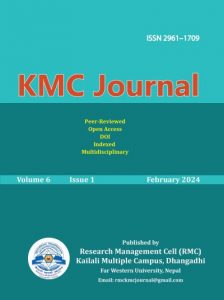


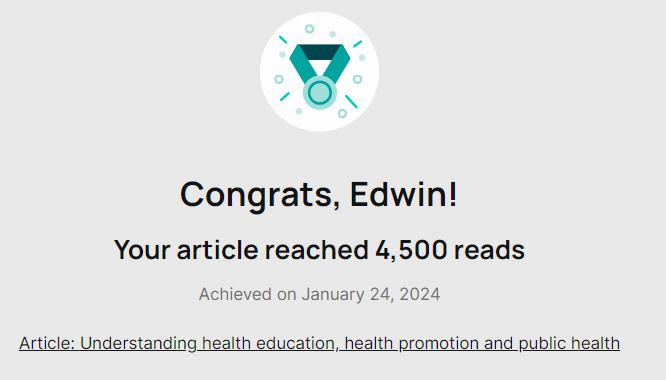
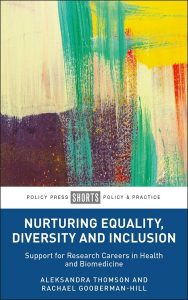
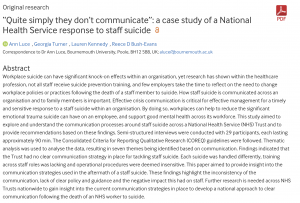 Prof. Ann Luce (FMC), Ms. Georgia Turner (PhD candidate FST), Ms. Lauren Kennedy (MSc student FST) and Dr. Reece D. Bush-Evans (Lecturer in FST) are pleased to announce the publication of their most recent work in British Medical Journal: Medical Humanities titled, “Quite simply they don’t communicate: a case study of a National Health Service response to staff suicide”.
Prof. Ann Luce (FMC), Ms. Georgia Turner (PhD candidate FST), Ms. Lauren Kennedy (MSc student FST) and Dr. Reece D. Bush-Evans (Lecturer in FST) are pleased to announce the publication of their most recent work in British Medical Journal: Medical Humanities titled, “Quite simply they don’t communicate: a case study of a National Health Service response to staff suicide”. 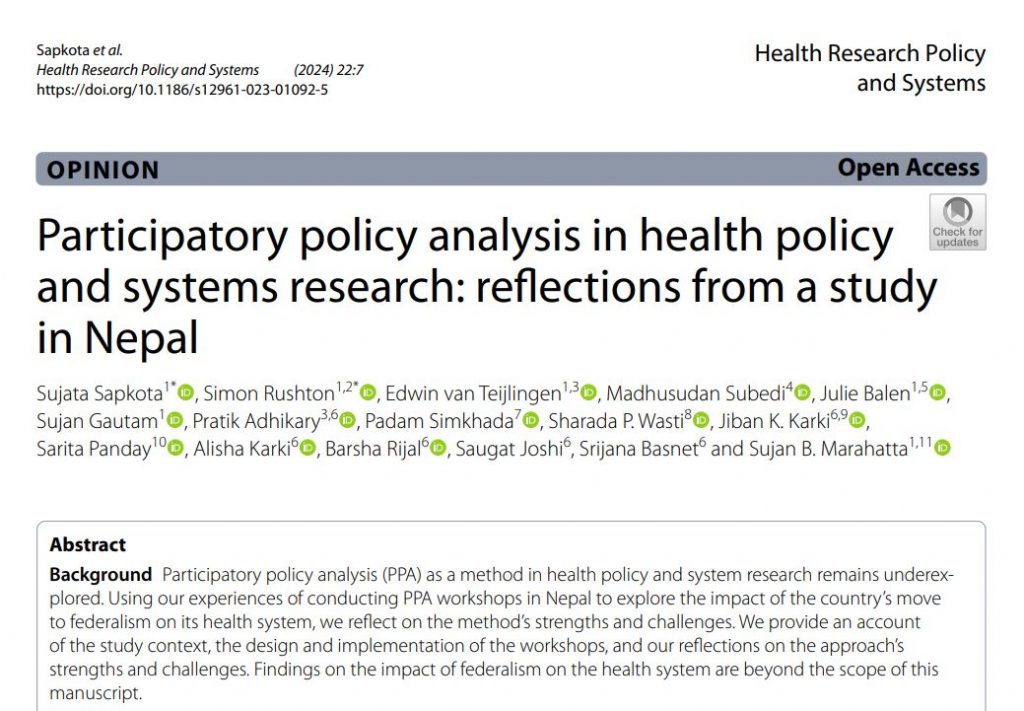
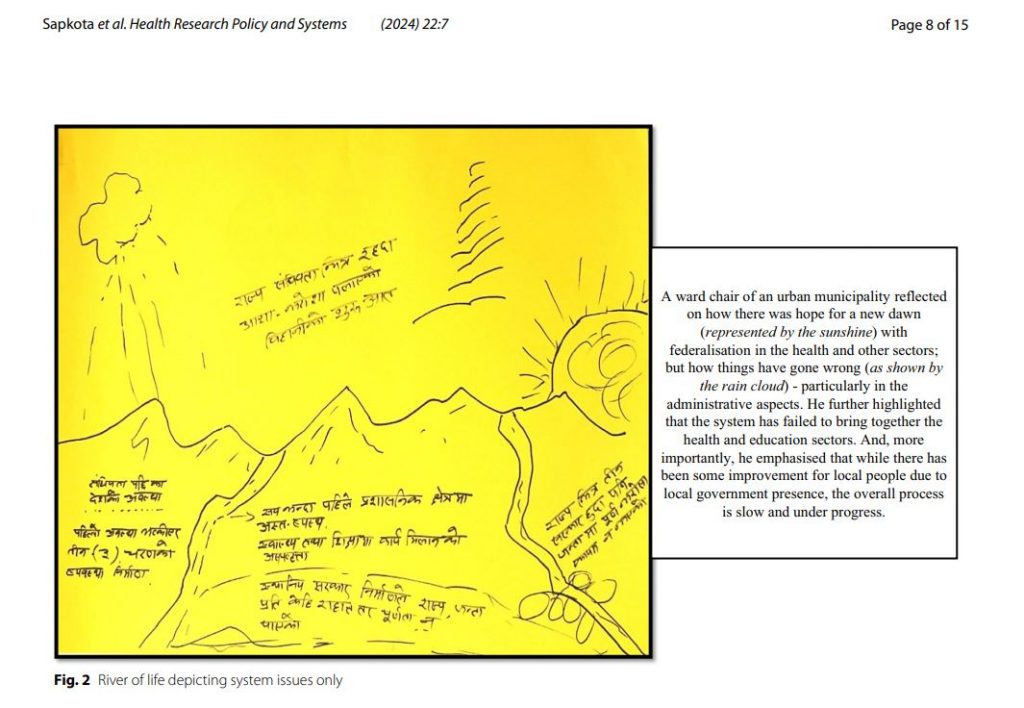
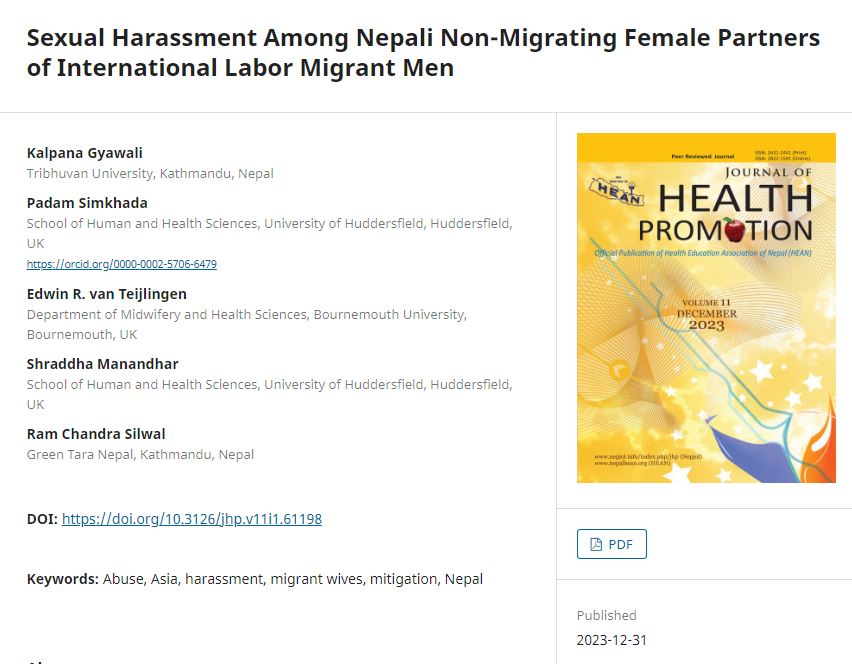

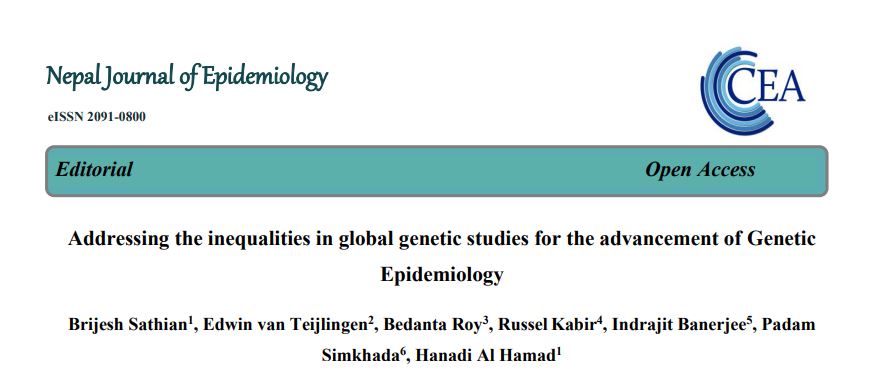
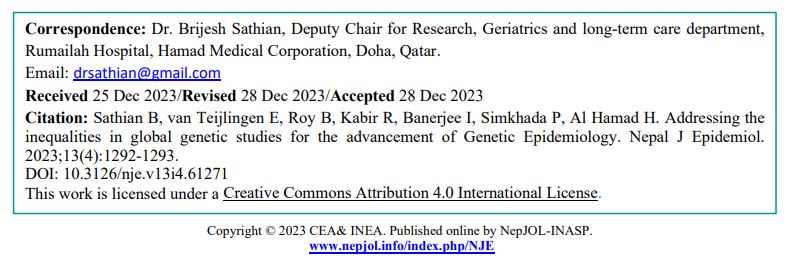

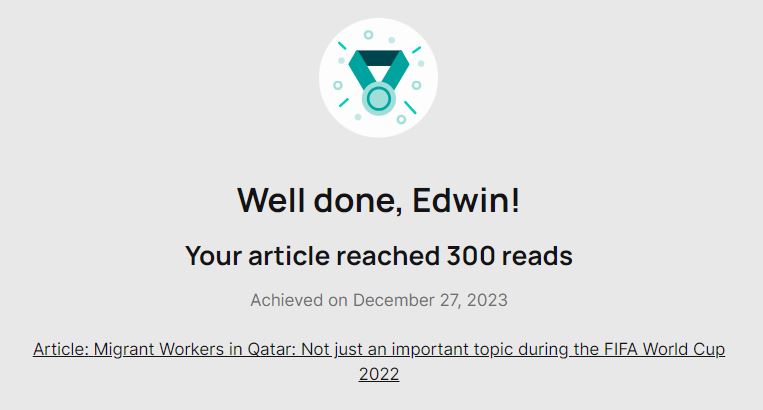
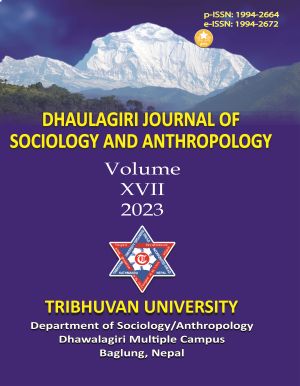
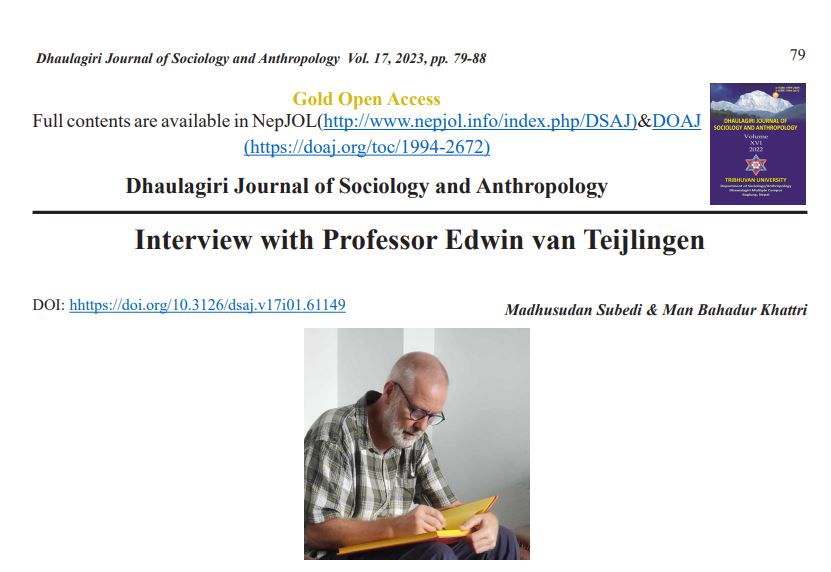
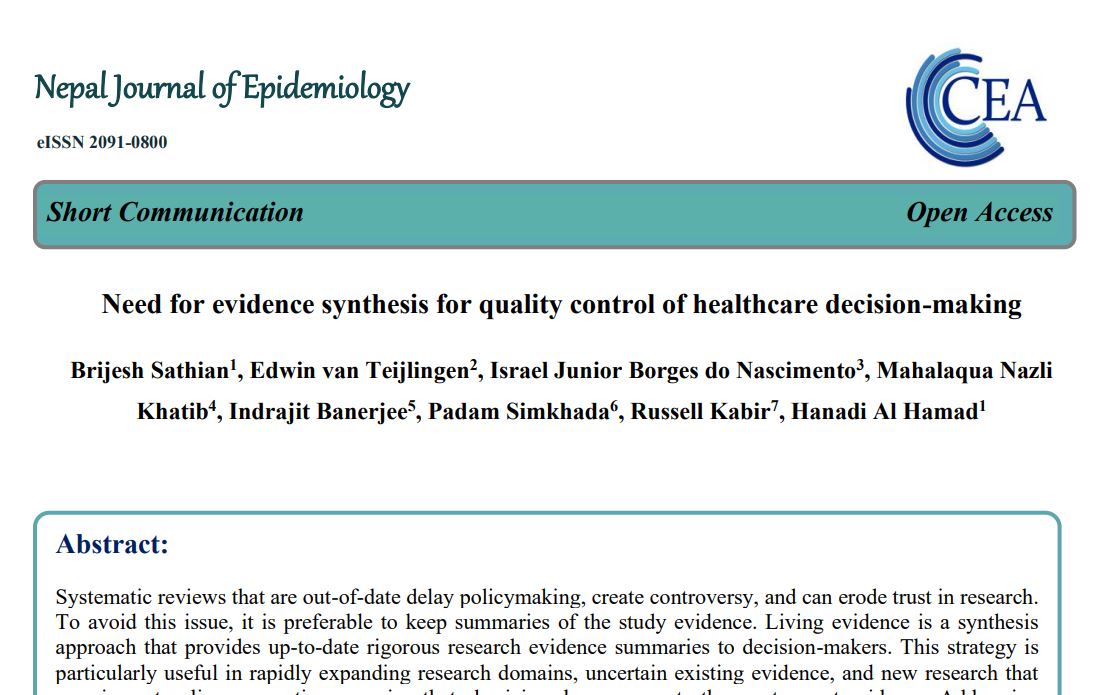
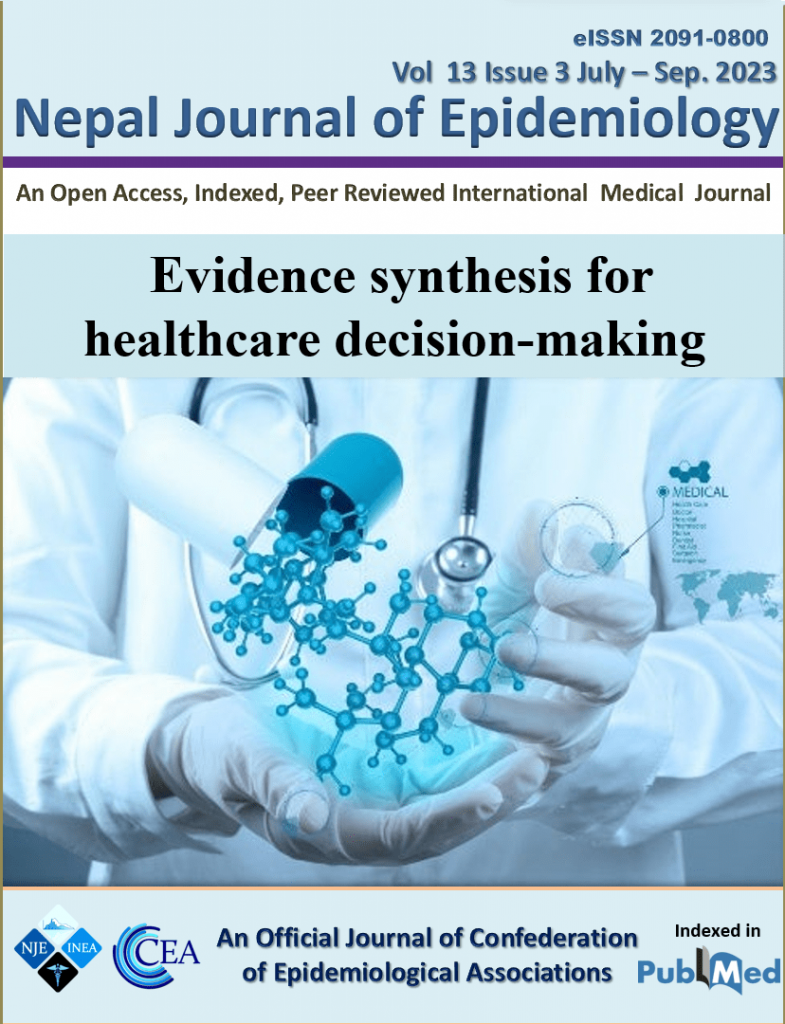
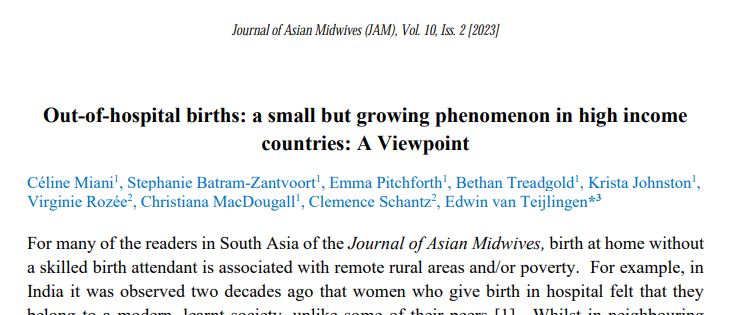

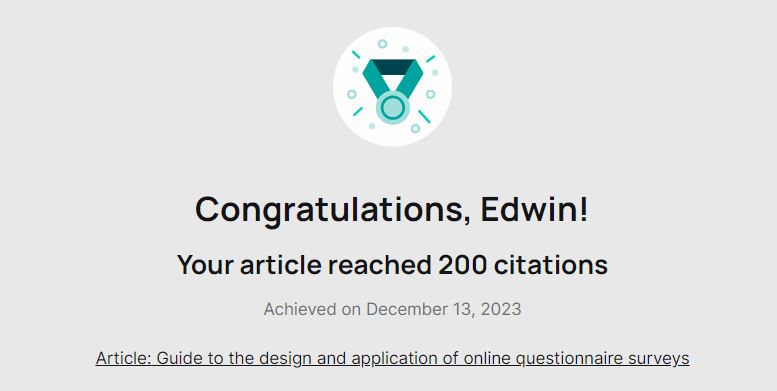
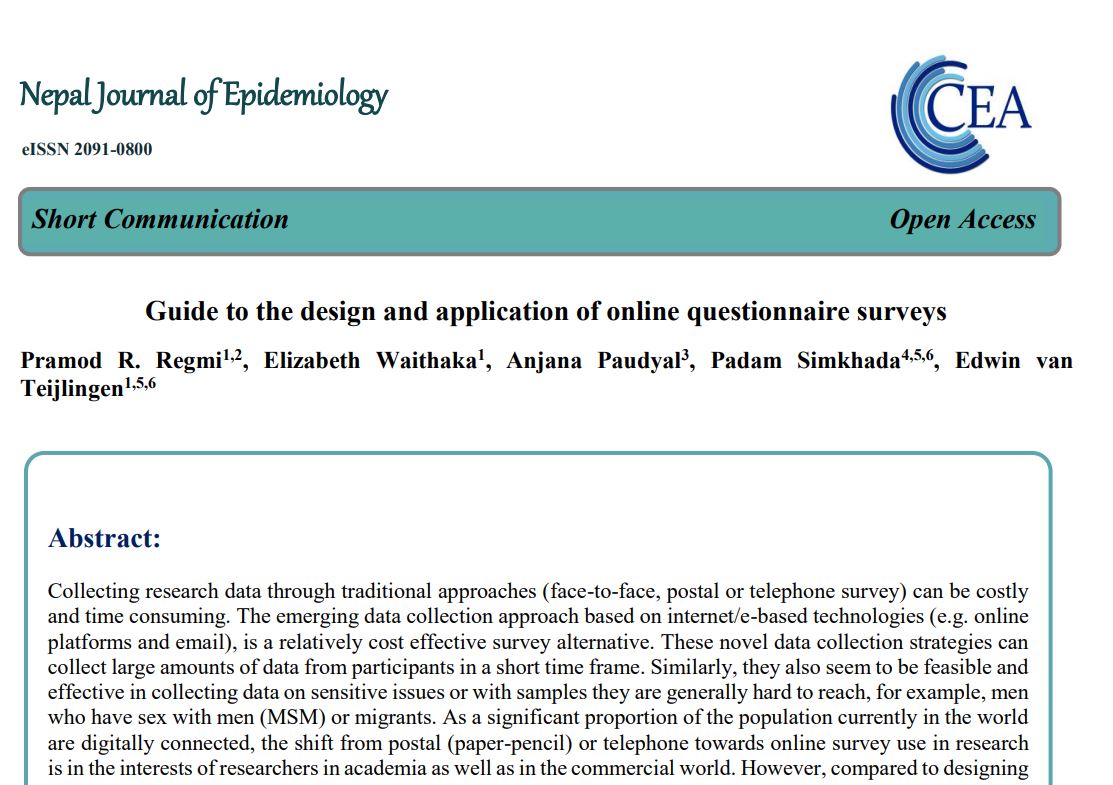

 Today we received notice that our paper ‘The impacts of decentralisation on health systems: a systematic review of reviews’ has been accepted by the international journal BMJ Global Health. [1] This review of reviews was produced as part of the Nepal Federal Health System Project, examining the consequences for the health system of Nepal’s move to a federal government structure. This is a joint project (2020-2024) led by the University of Sheffield and in collaboration with Bournemouth University, the University of Huddersfield,
Today we received notice that our paper ‘The impacts of decentralisation on health systems: a systematic review of reviews’ has been accepted by the international journal BMJ Global Health. [1] This review of reviews was produced as part of the Nepal Federal Health System Project, examining the consequences for the health system of Nepal’s move to a federal government structure. This is a joint project (2020-2024) led by the University of Sheffield and in collaboration with Bournemouth University, the University of Huddersfield, 
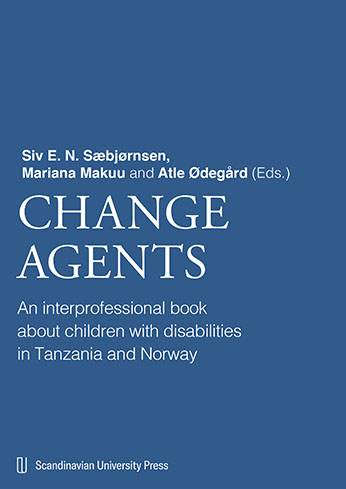


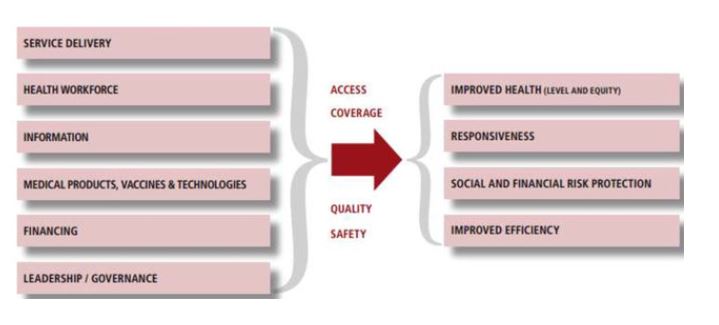
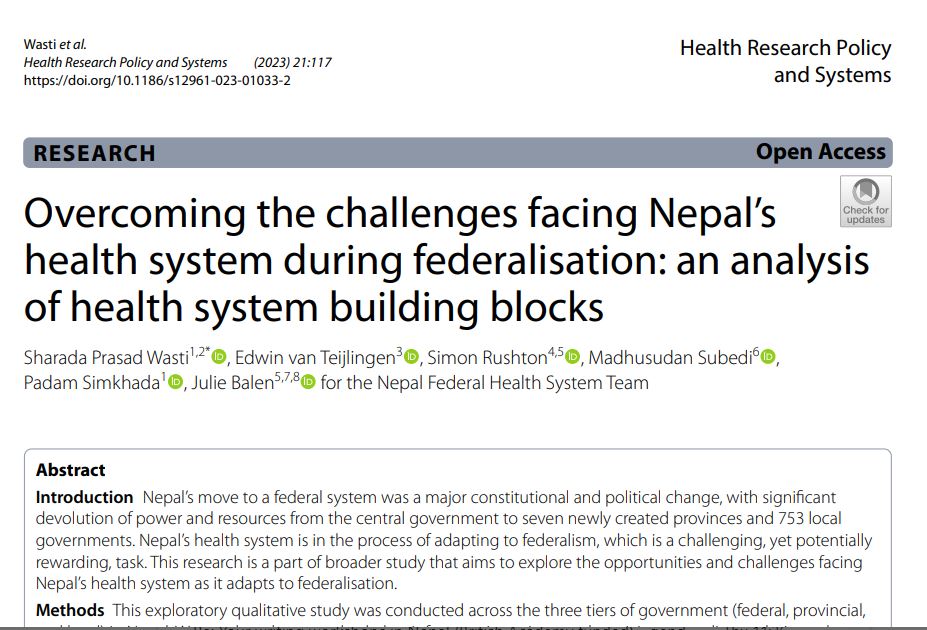











 REF Code of Practice consultation is open!
REF Code of Practice consultation is open! BU Leads AI-Driven Work Package in EU Horizon SUSHEAS Project
BU Leads AI-Driven Work Package in EU Horizon SUSHEAS Project Evidence Synthesis Centre open at Kathmandu University
Evidence Synthesis Centre open at Kathmandu University Expand Your Impact: Collaboration and Networking Workshops for Researchers
Expand Your Impact: Collaboration and Networking Workshops for Researchers ECR Funding Open Call: Research Culture & Community Grant – Apply now
ECR Funding Open Call: Research Culture & Community Grant – Apply now ECR Funding Open Call: Research Culture & Community Grant – Application Deadline Friday 12 December
ECR Funding Open Call: Research Culture & Community Grant – Application Deadline Friday 12 December MSCA Postdoctoral Fellowships 2025 Call
MSCA Postdoctoral Fellowships 2025 Call ERC Advanced Grant 2025 Webinar
ERC Advanced Grant 2025 Webinar Update on UKRO services
Update on UKRO services European research project exploring use of ‘virtual twins’ to better manage metabolic associated fatty liver disease
European research project exploring use of ‘virtual twins’ to better manage metabolic associated fatty liver disease